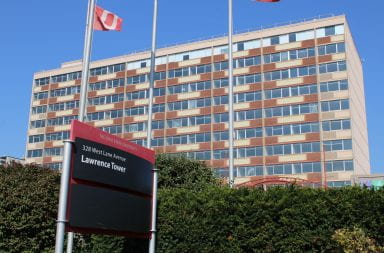The most astonishing thing about Magdiale Wolmark is not that his vegan restaurant, Dragonfly, is considered one of the ten best restaurants in the city. It’s not that his daughter draws him pictures of a superhero that fights germ warfare, that he looks a little bit like Bruce Willis, or even that he has a tattoo of a dragon covering much of the left side of his head. It’s that nearly all of what he eats, and all of what he serves, is organic.
With an increasing concern for the side effects of pesticides, herbicides, pollution and genetically “enhanced” food, organic food has for many offered the promise of a healthier body and cleaner environment. Plants grown organically use only natural fertilizers. In the last few years it has become much more than a new-age fad, but the concept is still blossoming.
“My job as a chef is to serve food that is good for the body, (and) in addition, good to taste,” Wolmark said.
When eating his food, people sometimes say ” ‘I didn’t know food tasted like that’,” Wolmark said. He speaks with a vibrant energy about how his customers’ spirits have an intense experience as they enjoy foods for the first time that they previously didn’t like or were allergic to.
Dragonfly located at 247 King Ave., doesn’t use cheese because it doesn’t have to. They have better things to do and other things they would rather make, Wolmark said. The chef has the skill and desire to create any meal from local organic products; even a soy vegan milkshake if he wanted.
The organic food movement is growing as fast as the tomato plants in the small garden behind the restaurant. “Fossil fuels are on the way out; sustainable is on the way in,” Wolmark said. “The technology’s ripe for harvesting.”
Wolmark said there is a myth that genetically modified foods are needed to feed countries. Third World nations then become deficient in vital resources like Vitamin A because they don’t have access to local food sources, Wolmark said.
“Contamination has already happened, and happened in the worst way,” he said.
With the exception of a few spirits and wines, Dragonfly serves, to the best of Wolmark’s knowledge, no genetically modified foods and only 100 percent organic produce.
Much of what is served at Dragonfly comes from Central Ohio farms.
The process from farm to plate is art, an ongoing poetry in motion. Wolmark sees Columbus as an urban, progressive, visionary city. A reflection of that is Dragonfly’s presence. However, no other establishment is taking the first steps to support superior, artisan produced, locally grown food and farms.
“If Cameron Mitchell just bought (organic) basil for his pesto, he could support an entire farm,” Wolmark said.
In June, Wolmark is opening a bakery next door to Dragonfly that will sell only local organic produce, bread, muffins and other organic variations. His restaurant also offers cooking classes, at a $10 discount to students, including a course oriented to dorm life for those with little more than a hot plate.
“Why not organic? Put simply, organic agriculture is good for the Earth and the people who live on it,” said Betsy McNair, spokeswoman for Organic Crop Improvement Association International, one of the world’s largest private organic certification agencies. The organization certifies premium organic foods that compete on the international market.
“Chemical agriculture depletes the soil and puts hazardous materials on our food,” McNair said. “If a farmer must wear special clothing to protect his or her health while spraying fields, why would a consumer want to eat that chemical-covered food?”
According to McNair, the U.S. and international organic industry is growing by nearly 20 percent a year. This is due in part to an increased interest in healthy living and to the recent implementation of the USDA’s National Organic Program late last October.
More and more people like Joe Romaker are gradually switching to organic food. The OSU alumnus began picking up a few organic fruits and vegetables at the grocery store, then started shopping at stores like Wild Oats and going to places like the Clintonville Co-op while in college.
“I know (when eating organic food) I’m not going to grow a third arm from either the chemicals or the genetically modified foods that the FDA thinks are good for my body,” he said.
“Dragonfly and other restaurants like Alana’s are on a mission to create great food,” said Tim Patrick who owns Toad Hill Organic Farm in Danville. “Dragonfly is committed to organic and has sought out what he (Wolmark) considers some of the best local food products. He has done a lot by his commitment to farmers, and has rewarded them by buying from them consistently and asked them to grow the items which he is interested in.”
Patrick, who also heads a local chapter of the Ohio Ecological Food and Farming Association, said organic and local establishments should go hand in hand.
“The less time food spends traveling, the fewer nutrients that are lost,” he said.
Huge corporate grocery stores like Wild Oats sell organic produce of varying standards to a large group of customers, but do not always support the local farmer.
“Recently they have had a policy of buying only through their regional headquarters and they also have a minimum order, which pretty much excludes most small growers,” Patrick said.
“If the only goal of the organic movement is to get organic into McDonald’s, then we all have missed the point,” he said. “Organic is about local, nutrition, water quality, soil quality, wildlife and human habitat preservation, regional economic stability (and) supporting farms so they and their families can afford to farm for generations to come. Otherwise, we lose the simple beauty of farmland which has no price, which is priceless.”


